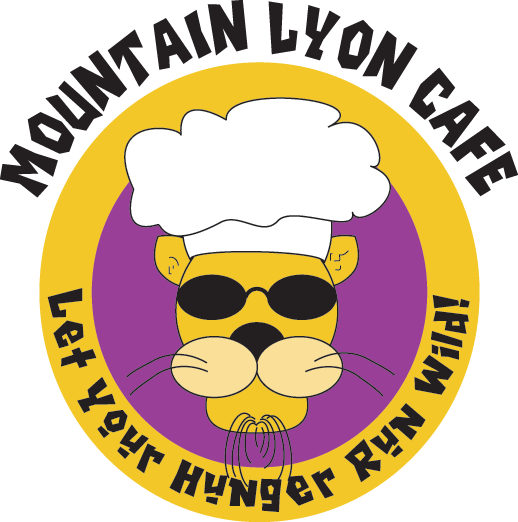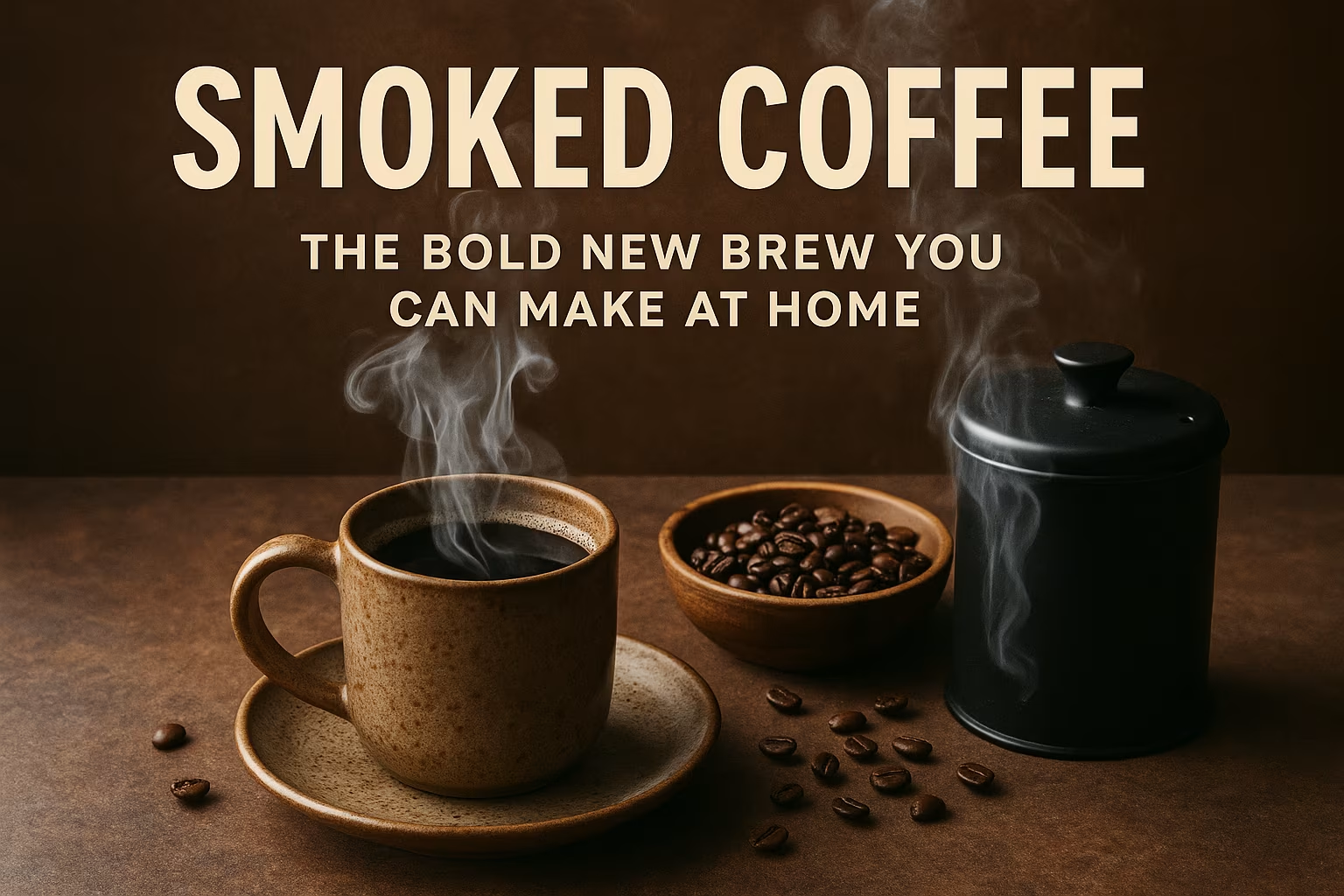Smoked Coffee is the bold new brew trend transforming your morning cup. Discover how to make smoked coffee at home, why it’s trending, and what makes its rich, smoky flavor irresistible. A must-read guide for adventurous coffee lovers.
Smoked Coffee: The Bold New Brew You Can Make at Home
In the ever-evolving world of specialty coffee, a new trend is brewing — quite literally. Smoked coffee is quickly gaining traction among home baristas, café innovators, and adventurous coffee drinkers. The phrase “Smoked Coffee Is the Bold New Brew—Here’s How to Make It” isn’t just a catchy headline — it’s a declaration of a flavor revolution. If you’ve ever enjoyed the warmth of a campfire or the richness of a well-aged whiskey, this emerging coffee flavor trend will spark your curiosity and your taste buds.
“A morning without coffee is like sleep that never ends, but a morning with smoked coffee is a ritual reborn.” – Unknown Coffee Philosopher
Let’s dive into the smoky depths of this bold brew and discover why it’s the next big thing in coffee culture — and exactly how you can make it yourself.
See more: How to recipe for iced coffee with almond milk?
What Is Smoked Coffee and Why Is It Trending?
Smoked coffee refers to coffee beans that have been exposed to smoke—either during or after roasting—using specific types of wood like oak, hickory, cherry, or mesquite. The smoke infuses the beans with a distinct, aromatic complexity, adding layers of flavor that range from subtle earthiness to deep campfire boldness. It’s not about burning beans — it’s about curating flavor through centuries-old culinary traditions.
A Brief History of Smoking in Food & Drink
The practice of smoking as a flavor enhancer dates back thousands of years. From Scandinavian smoked fish to Lapsang Souchong tea from China, smoke has been used not only as a preservative but also as a culinary signature.
| Item | Origin | Notes on Smoking Tradition |
|---|---|---|
| Lapsang Souchong | China | Tea leaves smoked over pinewood fires |
| Smoked Salmon | Scandinavia | Cold-smoked for days, subtly flavored |
| Mezcal | Mexico | Agave hearts roasted in earthen pits |
Now, the coffee industry is borrowing a page from these ancient techniques to forge new flavor frontiers.
The Rise of Smoked Coffee in 2025
2025 is the year of smoked coffee. A quick scan through platforms like Pinterest, Reddit’s r/Coffee, and Barista competitions reveals a wave of third-wave cafés offering smoked espresso shots, smoked cold brews, and even smoked coffee cocktails. Influencers on TikTok are sharing DIY tutorials, while specialty roasters like Lyoncafe have begun offering pre-smoked small-batch beans, adding storytelling and authenticity to every sip.
The trend is fueled by:
Consumer craving for bold, unique experiences
Sustainability in local wood sourcing
Culinary crossover from BBQ and craft cocktails
The “fire-to-cup” aesthetic that resonates on social media
How to Make Smoked Coffee at Home: Step-by-Step Guide
Yes, you can make smoked coffee at home — and you don’t need a professional roastery to do it. Follow this detailed guide and discover the art of smoking beans, right in your kitchen or backyard.
Tools and Ingredients You’ll Need
To get started, gather the following:
Fresh coffee beans (medium or dark roast recommended)
Smoker (charcoal, pellet, or stovetop)
Wood chips (applewood, hickory, cherry, oak)
Aluminum tray or mesh screen
Grinder and brewing gear (French press, pour-over, espresso machine)
💡 Tip: Use untreated, food-safe wood chips only. Avoid chemically treated firewood.
Step 1: Choosing the Right Coffee Beans
Not all beans are created equal when it comes to smoke. Choose:
Single-origin beans with chocolatey, nutty, or earthy profiles
Medium to dark roast beans (light roasts may be overpowered)
Avoid flavored or already infused beans
| Roast Level | Works Well for Smoking? | Notes |
|---|---|---|
| Light | ❌ | Too subtle, may clash with smoke |
| Medium | ✅ | Balanced, reveals smoky undertones |
| Dark | ✅✅ | Amplifies bold, roasted notes |
Step 2: Prepping Your Smoker or Smoking Method
There are two main smoking methods:
Cold Smoking (low temp < 100°F): Gentle infusion without roasting.
Hot Smoking (temp 225–275°F): Infuses deeper but risks over-roasting.
If you own a pellet smoker, set it to the lowest temperature and let it preheat. If using a DIY smoking box, set up indirect heat and prepare a pan for the wood chips.
Place your beans in a thin layer over a mesh screen or foil tray with holes to allow smoke penetration.
Step 3: Smoking the Beans — Cold vs Hot Smoking
Cold smoking is ideal if you already have roasted beans and just want the flavor. Expose them to smoke for 30–90 minutes, checking every 15 minutes to control strength.
Hot smoking is a better option if you’re roasting beans and want a smoked finish. Monitor closely to avoid burning.
📝 Checklist:
Stir beans every 10–15 minutes for even exposure
Keep moisture out — beans must remain dry
Let smoked beans rest for 24 hours to degas and stabilize flavor
“Like aging a fine wine or dry-aging steak, letting smoked coffee rest brings out the best of both worlds.” — Lyoncafe Master Roaster
Step 4: Brewing Smoked Coffee
Once smoked, grind the beans using your preferred method. Recommended brewing options include:
French Press: Emphasizes body and smoky aroma
Cold Brew: Accentuates mellow, woody tones
Espresso: Creates intense, layered flavor bombs
Pro Tip: Avoid adding flavored syrups. Let the smoke speak for itself.
Smoked Coffee Flavor Profile: What Makes It Unique?
At first sip, smoked coffee offers a striking profile: bold, dark chocolate base, hints of toasted wood, and a lingering, leathery finish. It’s both primal and refined — like sipping espresso beside a fireplace in a mountain lodge.
Comparing Smoked Coffee vs Regular Roasts
| Feature | Smoked Coffee | Regular Coffee |
|---|---|---|
| Aroma | Woodsy, campfire, earthy | Fruity, floral, acidic |
| Flavor Complexity | Deep, bold, toasted | Balanced, bright, citrusy |
| Aftertaste | Lingering, warm | Clean, crisp |
| Best Pairings | Dark chocolate, smoked meats, cheese | Pastries, fruits, light breakfast |
Aroma and Aftertaste Notes
Common aromatic descriptors in smoked coffee:
Cedar
Charcoal
Maple smoke
Roasted almond
Leather and tobacco
It’s not just about strength — it’s about depth.
Popular Variations and Recipes You Can Try
As with any trend, creativity fuels the fire. Smoked coffee has birthed dozens of flavor-forward recipes across the globe.
1. Smoked Cold Brew with Maple
A silky, iced smoked coffee brewed cold for 18 hours, finished with a touch of organic maple syrup and sea salt. Best served over crushed ice.
2. Spiced Smoked Coffee
Infuse smoked beans with clove, cinnamon, and star anise. Brew hot and top with steamed milk for a winter-warmer latte.
3. Smoked Coffee Affogato
Pour a double shot of smoked espresso over vanilla bean gelato. A sensory experience that’s equal parts dessert and digestif.
“Smoked coffee pairs beautifully with desserts. It acts like a bourbon or scotch in culinary pairings — bold, rich, unforgettable.” – Culinary Institute of America.
Is Smoked Coffee Healthy? Pros and Precautions
As with any trending food or beverage, a common question arises: “Is smoked coffee actually good for you?” The answer lies in moderation, preparation, and source quality.
Health Benefits of Smoked Coffee
Smoked coffee, especially when made with high-quality beans and natural wood, retains the core health benefits of regular coffee, including:
Antioxidants like chlorogenic acid, which can help combat inflammation and protect cells
Improved mental focus and alertness from caffeine
Potential metabolic boosts that assist with fat oxidation
“When you combine coffee’s health properties with the gentle infusion of natural smoke, you get a beverage that’s both stimulating and sensorial.” – Dr. Elaine Rosen, Nutrition Research Institute, 2023
In addition, if the beans are smoked using hardwood chips with no chemical additives, there’s no additional caloric intake or artificial flavoring—making it ideal for keto, paleo, and clean-eating regimens.
Potential Risks and Precautions
However, not all smoked foods are created equal. Here are important considerations:
Over-smoking or using softwoods (like pine) can introduce harmful compounds (polycyclic aromatic hydrocarbons – PAHs), especially at high temperatures.
Artificial smoked flavorings, sometimes found in commercial blends, may contain additives and preservatives that detract from the natural profile.
Overconsumption of caffeine is still a factor—whether it’s smoked or not.
Health Tip: Always source your beans from reputable roasters. If you’re DIY-smoking at home, use a cold smoke method and ensure beans are not charred or overly exposed to heat.
At Lyoncafe, we follow a strict low-temperature smoking protocol using only certified organic wood chips, ensuring every batch is safe, flavorful, and eco-conscious. Learn more about our process at mtnlyoncafe.com.
Where to Find or Buy Smoked Coffee Beans
As demand grows, so does the availability of premium smoked coffee beans. But not all offerings are equal. Here’s a guide to help you find the best:
Top Smoked Coffee Brands in 2025
| Brand | Origin | Smoking Method | Flavor Profile | Price Range |
|---|---|---|---|---|
| Lyoncafe | Vietnam 🇻🇳 | Cold-smoked, cherry wood | Bold, nutty, smooth | $$ |
| Campfire Roast | USA 🇺🇸 | Hickory smoked | Deep, woody, robust | $$$ |
| Fog Mountain | Canada 🇨🇦 | Maple smoked | Sweet, toasty, rich | $$ |
| SmokeCraft | Germany 🇩🇪 | Oak barrel-aged | Spicy, chocolatey | $$$$ |
🛒 Lyoncafe’s signature smoked line, launched in early 2024, became a best-seller in Southeast Asia. Our unique “Cầu Gỗ” roast (named after the iconic wooden bridge in Hội An) pays tribute to Vietnam’s ancient heritage of wood craft and flavor alchemy.
How to Shop for Smoked Beans Online
When buying smoked coffee online:
Look for small-batch roasting for freshness
Ensure the wood type and smoking process are disclosed
Read customer reviews on flavor and consistency
Prefer brands that allow direct-trade sourcing from farms
Many specialty shops now offer smoked beans as seasonal items, especially in winter months or as limited-edition holiday releases.
Final Thoughts: Should You Try Smoked Coffee?
Let’s cut to the chase: if you’re a coffee lover who thrives on exploring new tastes, enjoys rituals around your cup, or loves the feeling of comfort paired with adventure, then smoked coffee is a must-try.

My name is Kara Chavez, and I love coffee. I love making the best coffees – espresso, latte, macchiato. I always strive for perfection in my barista skills, and I take great pride in bringing delicious cups of coffee to my customers.
I’ve been in the coffee industry for many years, and I know everything there is to know about brewing the perfect cup of coffee. My passion for coffee shines through in every cup I make, and I hope you’ll stop by soon so I can share my love of coffee with you!

